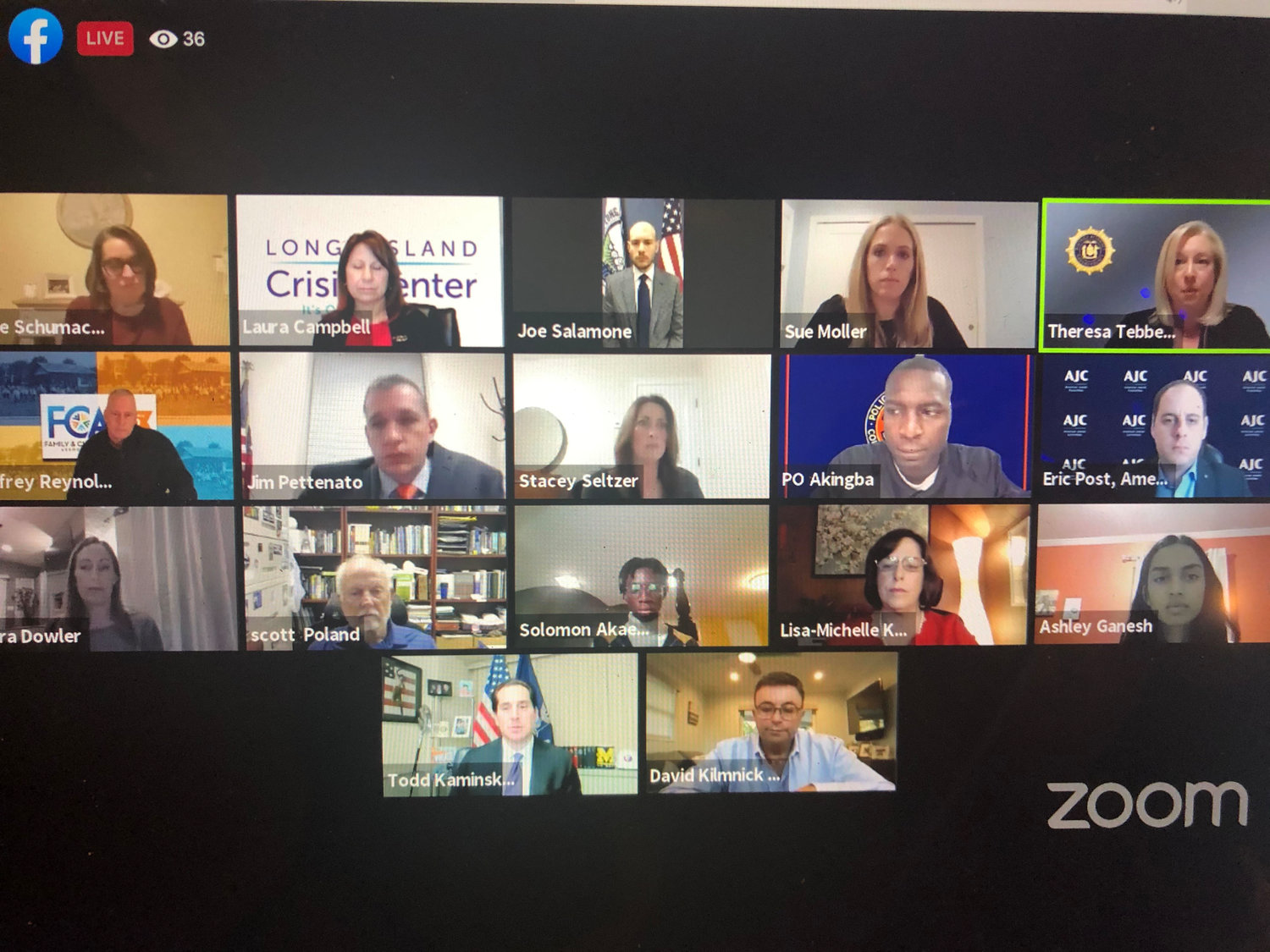Virtual forum discusses cyberbullying
With children spending more time than ever on electronic devices during the coronavirus pandemic, concerns over cyberbullying have been on the rise. On Feb. 11 State Sen. Todd Kaminsky, a Democrat from Long Beach, hosted a virtual roundtable to discuss the issue and how to combat it, including pending legislation, which would establish a task force on cyberbullying to study its effects on the state’s youth.
The bill is currently out of committee and awaits a vote on the Senate floor. The Assembly version of the bill remains in committee.
“This is an issue that needs to be front and center,” Kaminsky said, noting that early intervention among children should be a priority.
Included among the panelists were local teenagers, Valley Stream Central High School student, Solomon Akaeze, 15, and Baldwin High School student Ashley Ganesh, 17. Both spoke about the value of fostering good communication between parents and their children over safe social media practices.
“You can’t stop youth from having sex, but you can educate them through sex ed., and in the same way, you can’t stop youth from using technology, but you can educate yourself and your children about the right way to use social media,” Akaeze said. “This cold-turkey policy where parents take away their children’s technological devices isn’t going to work because technology is not going away. Kids will always find a way to get access to technology.”
“There are some scary people on social media and my parents never checked my text messages when I was younger,” Ganesh said, noting that she received her first cell phone when she was 11. “If my parents were to say to me now, ‘give me your phone,’ I would say no because that’s an invasion of my privacy. Instead of taking away your children’s phones, adults need to teach them, so that they can recognize the good and bad on social media.”
Their views differed from those of others on the panel who advised that parents should have strict oversight over their children’s social media use and severely restricted access to electronic devices, particularly at a young age.
“Kids in elementary school don’t need any kind of social media and middle school is a hard time in development, so that’s not a good time for them to get phones because they are not mature enough,” said Katie Schumacher, founder of, ‘Don’t Press Send,’ a campaign to educate children on safe technology use. “If you insist on getting your kids phones around middle school, get them a burner phone with just numbers on it and implement rules, so they know it’s not just their phone.”
For Sue Moller, a guidance counselor at Lynbrook High School, she said, her children are home more often for virtual classes because of the pandemic, which in turn gives them more access to technology. However, for her youngest, eight-year-old son, she has established rules for when he can use his device.
“My son is not on social media because I couldn’t even imagine,” she said. “I also don’t give him the passwords to his iPod. More parents need to get on board in this way.”
Laura Campbell, director of education at the Long Island Crisis Center agreed that parents need to establish structure for their children’s screen time, however, she also expressed concern about the possibility of parents becoming too strict, which could have the opposite intended effect. She said parents need to work on finding a balance between effectively parenting without losing the bond that they have with their children.
“Force brings resistance and that is physics, but nothing beats connection and relationships with kids,” she said. “However, parents are the number one influencers of their youth and we have to show them this.”
Others counted that parents need to take charge in their children’s affairs.
“Parents are always getting into battles with their kids because their kids won’t give them the passcodes to their phones,” said Scott Poland, a psychology professor at Nova Southeastern University and a nationally-recognized expert on cyberbullying. “If you’re a parent, you shouldn’t worry if your ten year old likes you at any given moment. Parents need to be educated and motivated to take charge of all this.”
Joe Salamone, founder and executive director of the Long Island Coalition Against Bullying advised that parents need to lead by example.
“Parents mistreat each other on community social media pages, so it’s not surprising that their kids are doing this,” he said. “I was bullied from sixth-grade to senior year in high school and my mom is still finding out things about that today. Parents often do not know what their kids are doing whether they are the bully or they are being bullied.”

 63.0°,
A Few Clouds and Breezy
63.0°,
A Few Clouds and Breezy 





